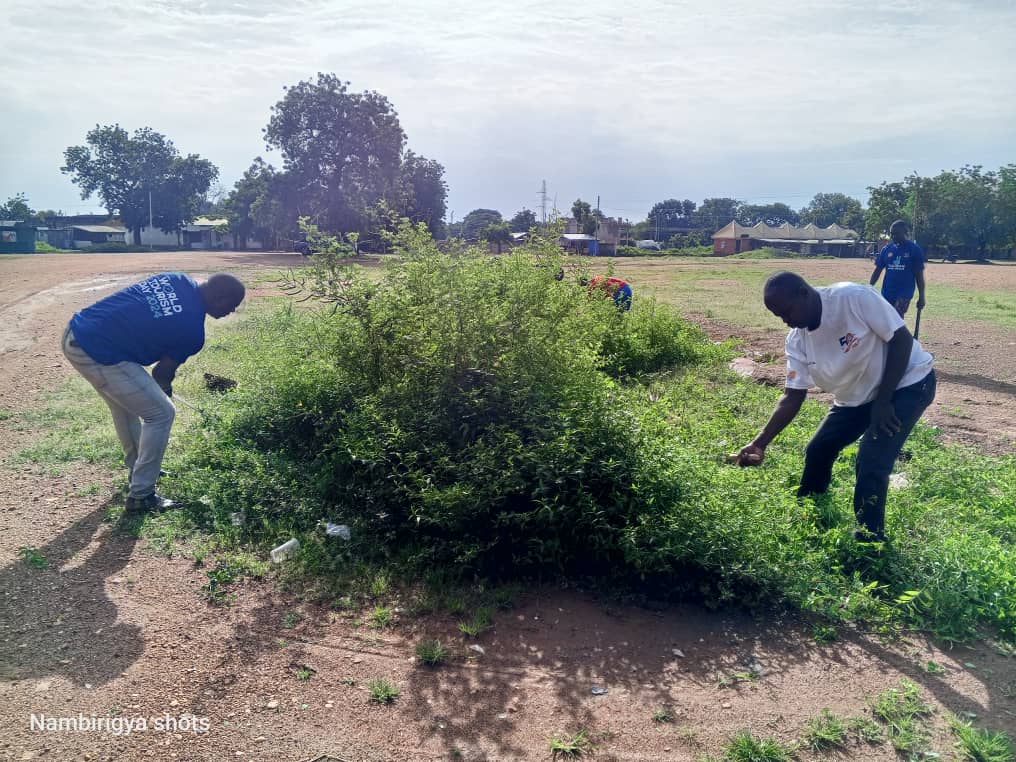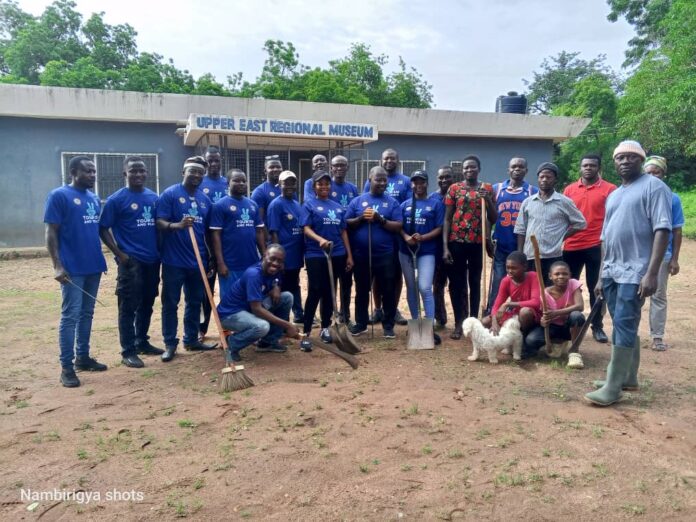The Ghana Tourism Authority in the Upper East Region, as part of events to mark the World Tourism Day, has embarked on a cleanup exercise at the Museum and Craft Village.
World Tourism Day falls on September 27 every year and has been celebrated since its institution in 1980 as it highlights the need for more and better-targeted investments for people, for peace, and prosperity.
This year’s edition is under the theme: “Tourism and Peace.” This reflects the profound connection between tourism and peace. The potential the tourism sector offers extends beyond preserving cultural and natural heritage. Its benefits include creating jobs, fostering inclusion, and strengthening local economies.
Speaking to the media on Saturday, September 28, 2024, as the region embarked on the cleanup exercise, the Upper East Regional Director, Wisdom Ahadzi, noted that his outfit decided to clean the premises of the Museum and the Craft Village and also to highlight these areas as attractions that should be visited.
Touching on the theme, Mr. Ahadzi explained that peace is essential to attracting and improving visitation to tourist sites.
Going into the general election in December, he urged citizens and all stakeholders to safeguard the peace of the region and country.
“All that we are saying is that when we have peace, tourism will develop. We expect that everybody will conduct themselves peacefully because no traveler will want to travel to where there is no peace and the theme matches with our current situation,” he emphasized the need for peace.

The Manageress of the Museums and Monuments Board in the Upper East Region, Pognab Prisca Nambomie Yenzie, explained that the Museum serves as the heart and soul of the region, where all that one needs to know can be found.
She, therefore, urged people to occasionally visit the museum and equally help them to preserve local materials and artifacts.
Director of the Center for National Culture, Collins Ahmed Edwards, called for close collaboration with stakeholders as he describes cleanliness as an act already embedded in culture.




